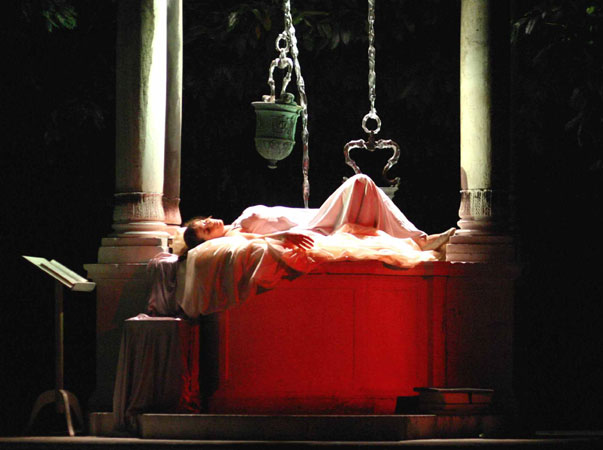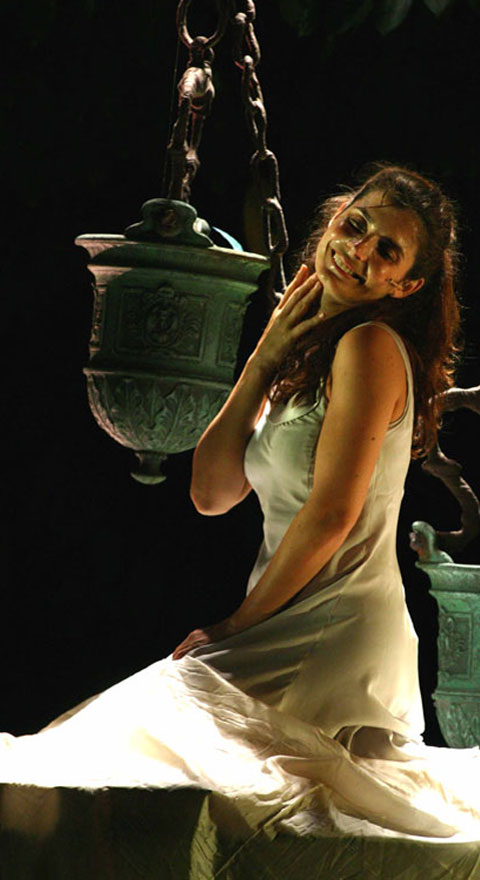music for voices, ciolin with live electronics and computer elaborated sounds
Diego Conti – 5 strings electric violin
surround diffusion 5.1
prodotto da Ravenna Festival 2004
durata: 56″
rappresentazioni
28 – 29 Giu, 01 Lug 2004 Ravenna, Chiostro della Biblioteca Classense, Ravenna Festival
foto di Maurizio Montanari per gentile concessione di Ravenna Festival
This work exists only as the result of the collaboration between writing, music, direction in the planning and composition phases, later enriched by the contribution of the interpreter.
Our often solitary paths met in a reciprocal transmission of thoughts, suggestions, intuitions. The apparent complexity created by the mixture of different disciplines becomes for us a pleasure of study and knowledge.
Elena Bucci, Luigi Ceccarelli, Nevio Spadoni

about music
Francesca da Rimini’s music is a composition for elaborated voices and electric violin, mostly live. Chiara Muti’s voice is a timbre and musical reference that guides the whole work, and through the electronic elaboration it acquires a spatiality alienating so as to project Francesca into a timeless dimension and an indefinite space. Francesca, for many centuries now, has confided her passion to Paolo, in a solitary, intimate, lucid and hallucinated monologue. As in a bas-relief or a painting, the action is frozen, it takes place forever and Francesca continually relives her love for Paolo, tragic and wonderful.
In the opera the supporting musical instrument is a five-stringed electric violin, played live by Diego Conti,
amplified and processed in real time. The sound texture of the instrument varies through timbral and dynamic variations: from the very light rubbing of the strings – made perceptible by an amplification intended as an acoustic magnifying glass – up to the density of an entire orchestra – created by superimposing the sound on itself infinite times in different heights. The violinist’s virtuosity, amplified by the electronic processing, generates the sound environments and atmospheres in which Francesca’s action and emotion move.
There are also various interventions by characters in dialogue with Francesca, who are part of her imagination. These are made with the elaborate voices of Chiara and Elena Bucci.
L. C.

director’s notes
Francesca moves in a timeless place, where the detachment of the passion of humans becomes a deep understanding of their actions: here, the words guilt, hell, adulterous love, lose their habitual and earthly connotation to become indications of a path of salvation , which takes shape through the conscious repetition of a tragic destiny.
Francesca relives her story, returning to a body that she almost no longer recognizes, without the benefit of blood and the oblivion of death, without the concrete presence of her lover, for whom she lost her life but not the light of the soul . Through the painful feeling of the absence of the beloved – which could seem a condition of permanence in hell – what is called guilt becomes pushed towards a luminous path.
Elena Bucci

